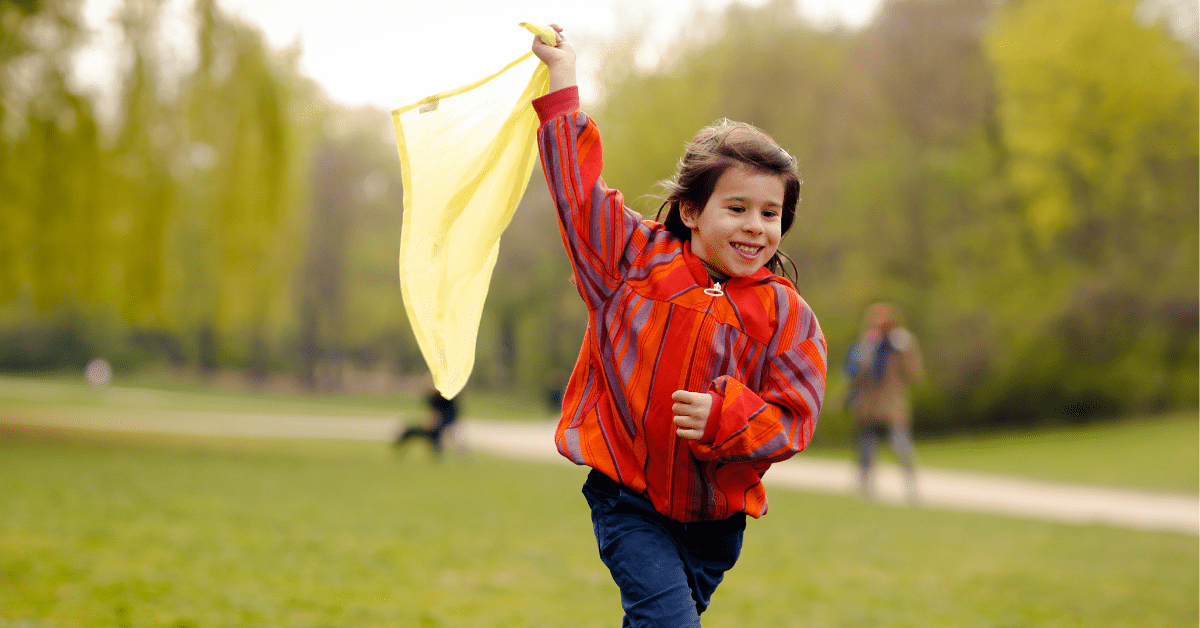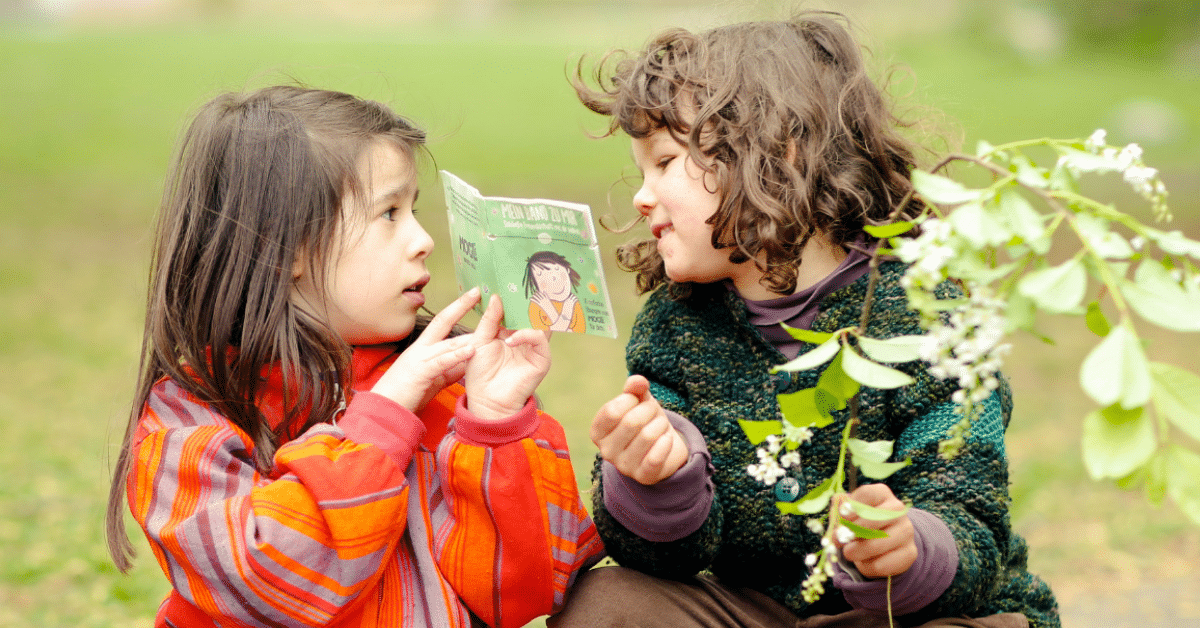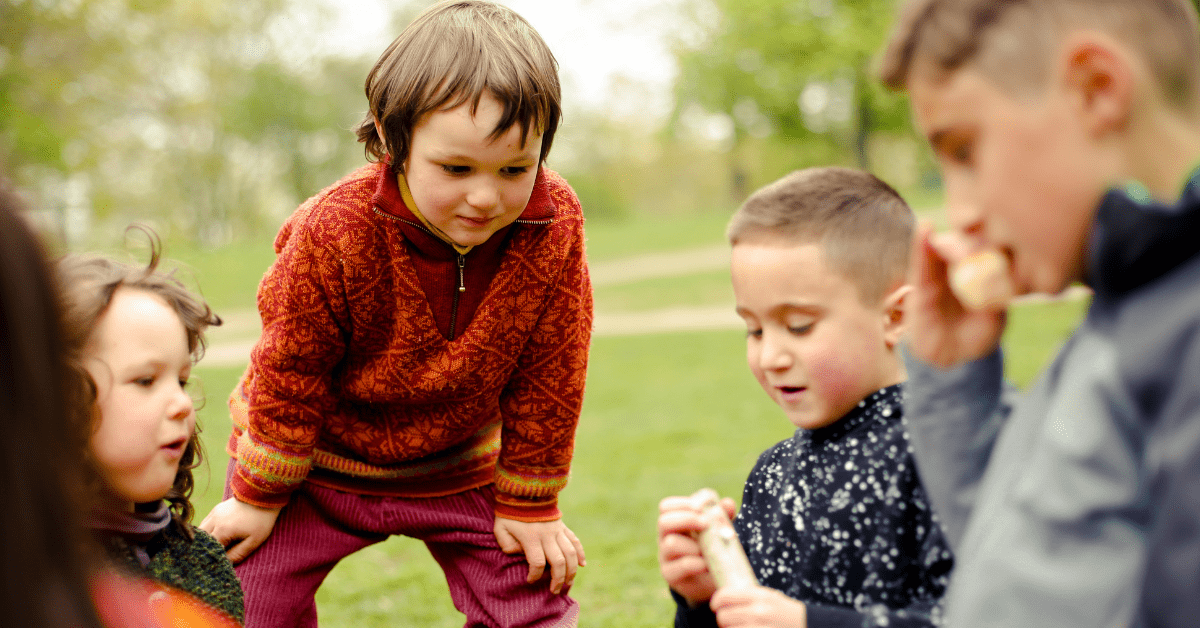WHY EXPERIENCES IN NATURE ARE SO IMPORTANT FOR CHILDREN
- A GUEST ARTICLE BY FOREST EDUCATOR ANKE WOLFRAM
Anke Wolfram is an educator, psychomotorist and forest educator. She knows that experiences in nature are important for children's development. Because this is a topic close to MOGLi's heart, Anke has written a guest article for you explaining why children should be out in nature as often as possible.




How children experience nature
Maja sits absorbed on the side of the path. Something captures her attention. "Look, the snail is letting me pet it." Sure enough - Maja is holding a large snail in her hands. Apparently, by accident, her petting of the lower part of the shell has lured the snail out of its home. Such childhood experiences in nature are deeply imprinted in our memories. They are a great treasure for our personal development.
Children get creative in nature
Maja is now building an enclosure for her new friend the snail.
That's the beauty of nature: Here, children are the creators of their own, very individual play world. There is no tidying up or prefabricated structures from the adult world. The desire to discover and transform their environment connects the outer nature with the children's own inner nature.
Scientifically sound: Nature as an ideal development space
What children intuitively feel has now been proven by numerous studies: Experiencing nature is important for children's positive development.
Neurobiologist Gerald Hüther and pediatrician Dr. Renz-Polster, for example, advocate nature as a developmental space in their book "How Children Grow Today." In nature, children can experiment, try things out and encounter themselves. If you observe children playing freely in the forest, for example, it seems as if they are reliving human evolution. They build huts, collect leaves and handle sticks.
Children learn through play in nature
Since her encounter with the snail, Maja knows that there are creatures that move differently than on two legs. She has learned that slime is sticky and that lettuce can taste good. After her encounter with the snail, she builds a crawl tunnel across the whole apartment at home and suddenly wants to make delicious salad. In nature, children learn with all their senses and their curiosity becomes the motor for holistic learning.
It doesn't always have to be a trip to the forest
Children discover an exciting world of experience on almost every street corner, behind every bush and in every puddle. All parents need to offer their children an optimal learning environment is some time outside and the desire to observe. We hope you have fun and look forward to hearing about your adventures in nature.

Anke Wolfram
Anke Wolfram is an educator, psychomotorist and forest educator. For more than ten years, she has managed the institution Waldkinder-Regensburg. She is also the author of the handbook "Naturraumpädagogik, published by Herder.


